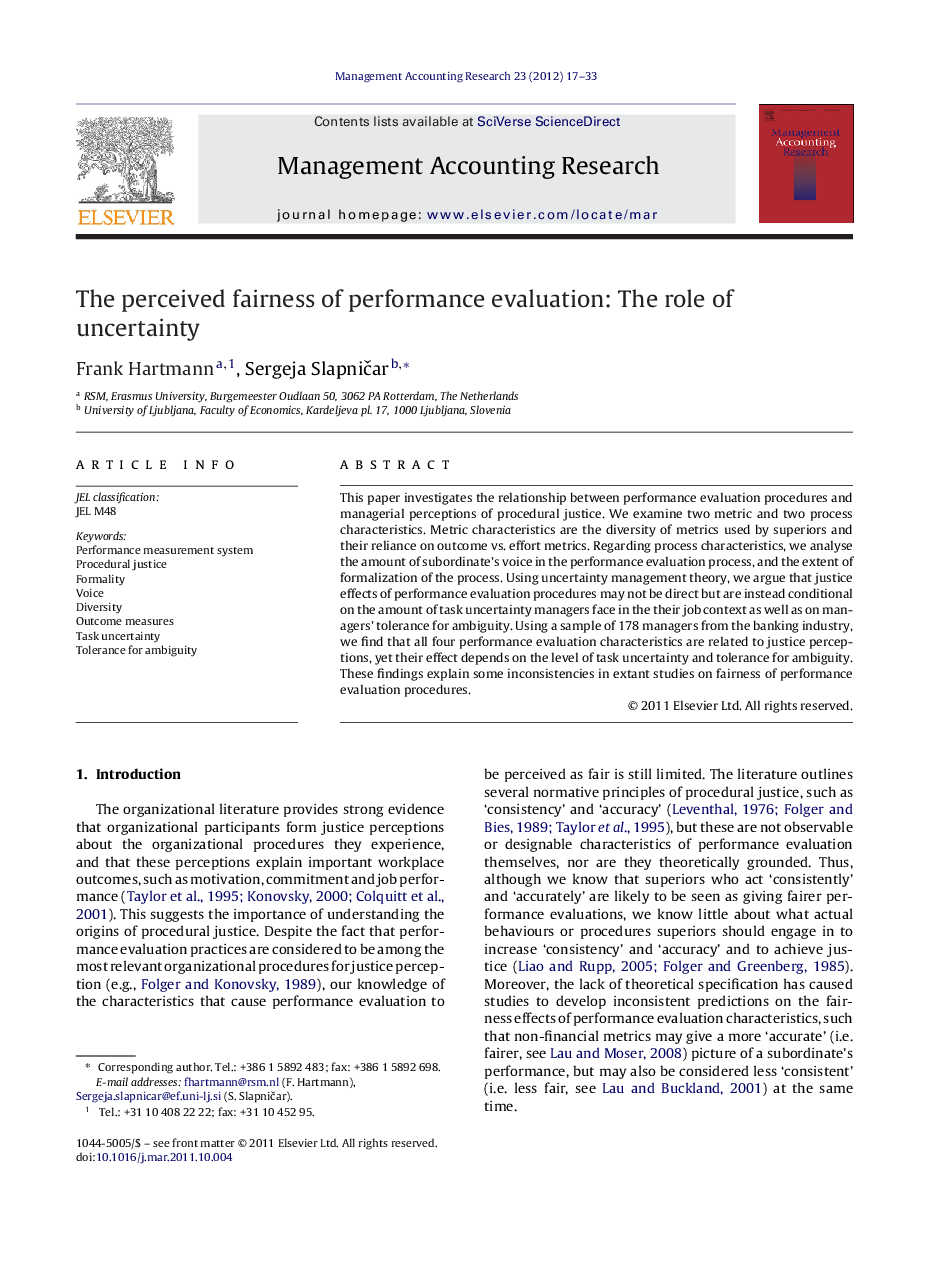| Article ID | Journal | Published Year | Pages | File Type |
|---|---|---|---|---|
| 1001899 | Management Accounting Research | 2012 | 17 Pages |
This paper investigates the relationship between performance evaluation procedures and managerial perceptions of procedural justice. We examine two metric and two process characteristics. Metric characteristics are the diversity of metrics used by superiors and their reliance on outcome vs. effort metrics. Regarding process characteristics, we analyse the amount of subordinate's voice in the performance evaluation process, and the extent of formalization of the process. Using uncertainty management theory, we argue that justice effects of performance evaluation procedures may not be direct but are instead conditional on the amount of task uncertainty managers face in the their job context as well as on managers’ tolerance for ambiguity. Using a sample of 178 managers from the banking industry, we find that all four performance evaluation characteristics are related to justice perceptions, yet their effect depends on the level of task uncertainty and tolerance for ambiguity. These findings explain some inconsistencies in extant studies on fairness of performance evaluation procedures.
► Relationship between formality and perceived procedural justice is positive only for managers with lower task uncertainty. ► Positive relationship between voice and procedural justice is stronger for managers with higher task uncertainty. ► The use of outcome measures has a positive effect on perceived procedural justice only for managers with lower tolerance for ambiguity. ► Diversity of performance measures has a positive effect on procedural justice only for managers with higher task uncertainty.
